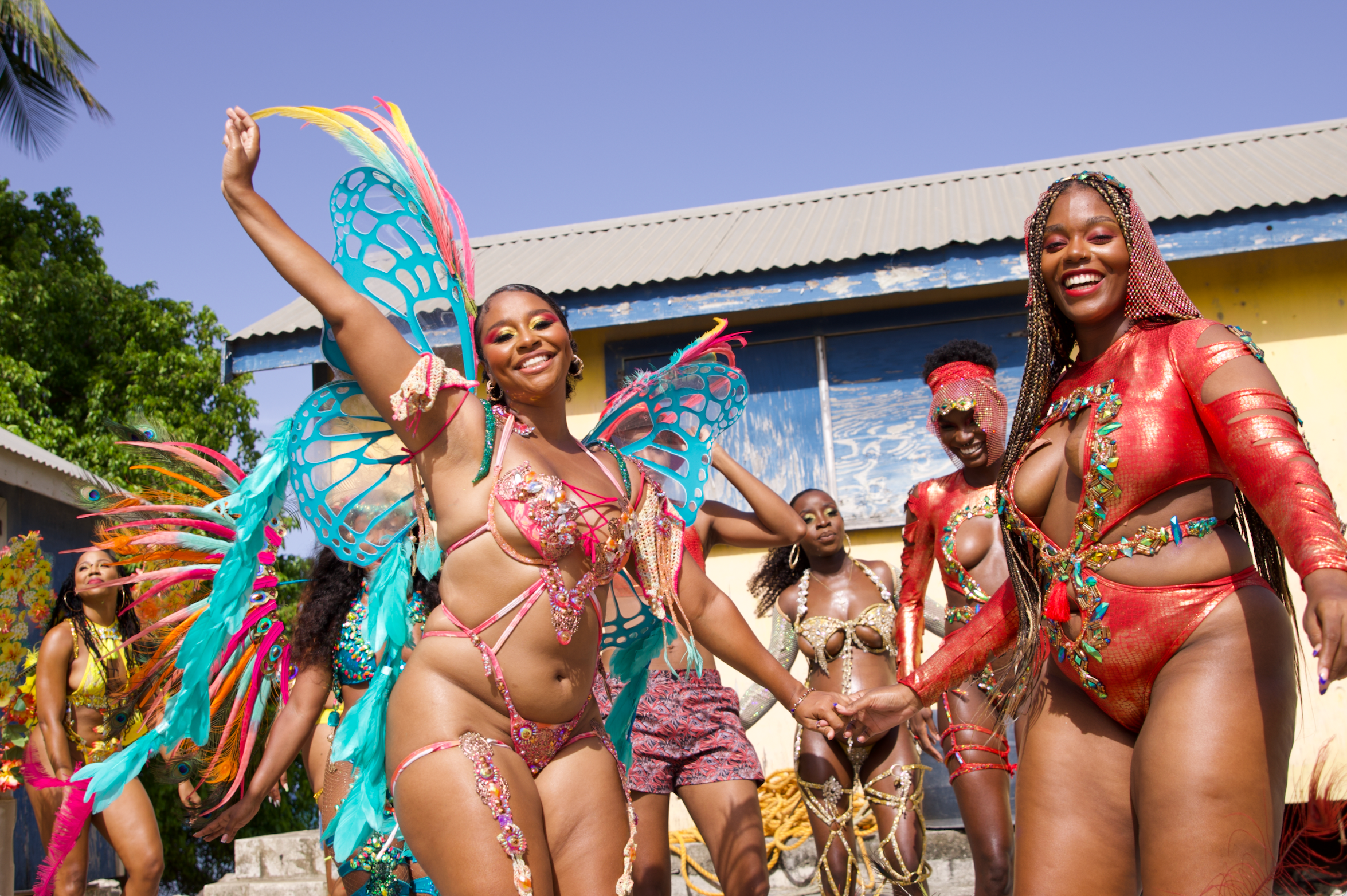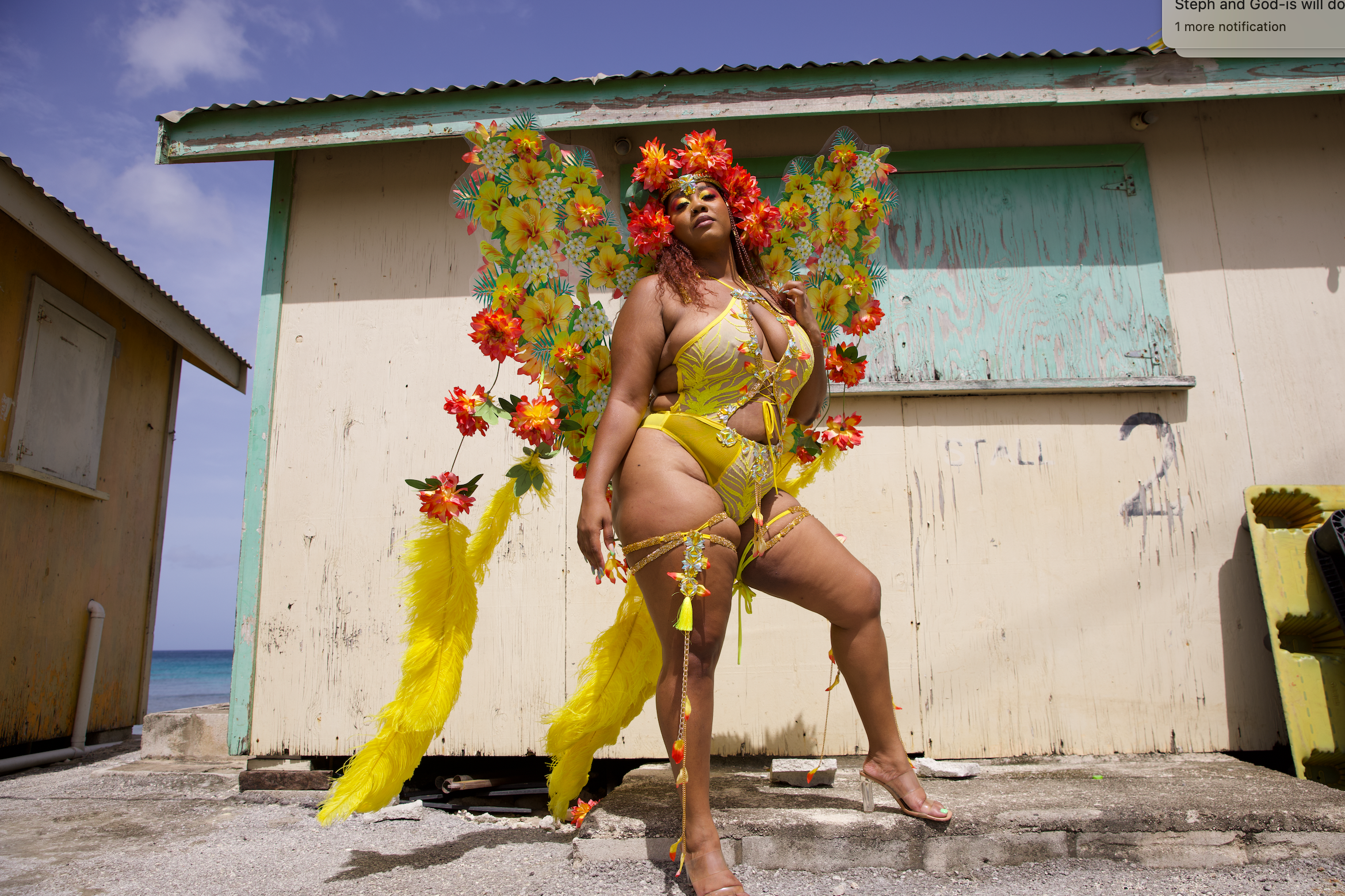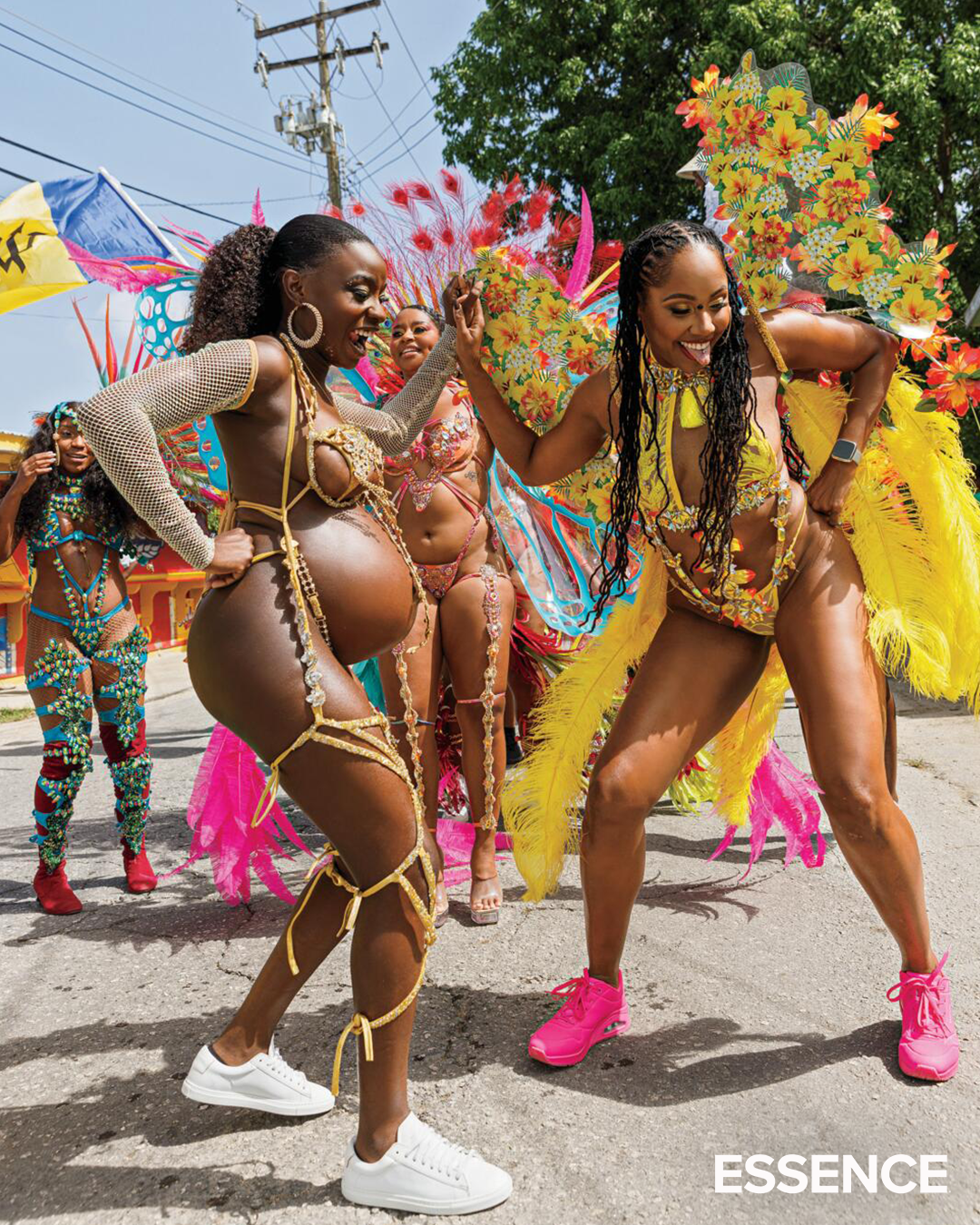
This story is featured in the September/October 2023 issue of ESSENCE, available on newsstands now.
I like to tell people that I’m a Kadooment baby—literally. Just two days before my mom was set to deliver me, she couldn’t let “Grand Kadooment”—the dazzling culmination of Barbados’ annual summer festival, Crop Over—pass without seeing it. Despite my impending birth, she and my dad were on the road that year. That’s the magic of Kadooment, the big, beautiful celebration of freedom that takes place in Barbados on the first Monday in August. It’s truly a spectacle, with thousands of Barbadians and visitors alike taking to the narrow, winding streets in sparkling, gemstone-studded costumes, dancing to the exuberant sounds of soca music.
“Even before I was old enough to understand the concept of Kadooment, I knew that was the day that all the pomp and pageantry was happening,” says Vanessa Phillips, a Carnival veteran whose first Kadooment experience was back in 2013. “As a little girl, I always envisioned myself being able to be a part of the festivities. It just looked fun and carefree, being able to showcase your costume and have a great time.”

Like Phillips, I fell in love with the spectacle, the energy, the vibes. As teenagers, my friends and I would spend hours in the scorching summer sun watching the costumed revelers pass by—admiring from afar, eagerly counting down the days to when we could participate. The year I turned 18, there was only one way I wanted to celebrate—after all, I’d basically been waiting for this my whole life. But there was just one problem: While I was finally ready to frolic on “de road” as we call it, my body was unfortunately not road-ready. As a dark-skinned, kinky-haired, heavyset teenager, I was clear pretty early on that while I might be in love with Carnival, Carnival did not seem to love me back. In some media coverage, the typical revelers at Carnival have often been light-skinned, long-limbed and slim, with loose, curly hair—even though that is not what most folks in the Caribbean, and especially in Barbados, look like.
If you wanted to participate in the “jump” (as it’s called in Barbadian parlance), it seemed to me the unspoken expectation was that if you couldn’t be caramel-toned, you’d at the very least make sure your stomach, arms and legs were toned. And if you wore anything larger than an XL bikini bottom or a DD cup, many of the costume bands—the groups that sell Carnival attire—simply didn’t carry your size.

“I honestly feel like I lucked out on my first opportunity to jump,” says Phillips, who initially didn’t plan on participating in Kadooment due to the lack of larger costumes. But in 2013, a designer offered custom options for full-figured women and was able to create a piece that suited her curves. “Back in that day, I didn’t feel like I saw a lot of band houses offering that. It was like, one size, this is the fit, and you have to go with it.”
Jin Forde-Codrington—creative director and lead designer for Vida by Esquire (VXE), Barbados’ newest Crop Over band—saw the lack of varied costume selections for everyone from studs to plus-size women as an opportunity. “The costumes for the fuller ladies sometimes just look like an afterthought,” she says. “You could tell it’s just ‘Okay, hide the belly.’ We could be more innovative than that.”
Forde-Codrington has been designing costumes for Carnivals all across the Caribbean for several years. However, as part of the Vida by Esquire team, she is now able to translate her vision into a cohesive collection that celebrates body diversity. “We always knew we had to represent our friends, our family, our customers,” she explains. “Now that we had the chance to do our own band, we had the perfect opportunity to capture all those things that we wanted, whether you’re pencil-thin or not. Different bustlines, different waistlines, different hiplines—we cater to everyone.”

The Crop Over festival and Kadooment are rooted in Barbados’ past as a colonial slave society. Every year, after a successful sugarcane harvest, plantation owners would allow enslaved Africans to celebrate with drinks, drums and dancing. Freedom is a part of the festival’s DNA—so it’s only right that the Kadooment experience embody that freedom and all the things that come with it, including self-love, inclusivity and representation. “I guess we have to keep thinking about who is not represented, and represent them,” says Forde-Codrington. “We won’t stop trying to ensure that everybody gets a chance to express themselves.”
In the beginning, every year that I participated in the event, I starved myself for months to fit into a costume. Fortunately, my personal body-positive journey—and more access to ensembles in a wider variety of measurements—means I’ll never do that again. I’m hopeful that with a spotlight on the culture of diversity that is present in Carnival experience, no one else will ever again feel excluded. We can all be a part of the joy of Kadooment, just exactly as we are.
Production credits: Makeup: Kamilah Codrington & Shanelle Estwick at I Heart Makeup; Carnival Costumes: Vida by Esquire; Models: Aisha Comissiong, Ashlee Estwick, Bernadette Chikowore-Jemmott, Rhea Layne, Shantal Martin, Shawayné Maynard, Zoe Hunte. Production: Maxine Harry at Visual Island Productions Inc.





